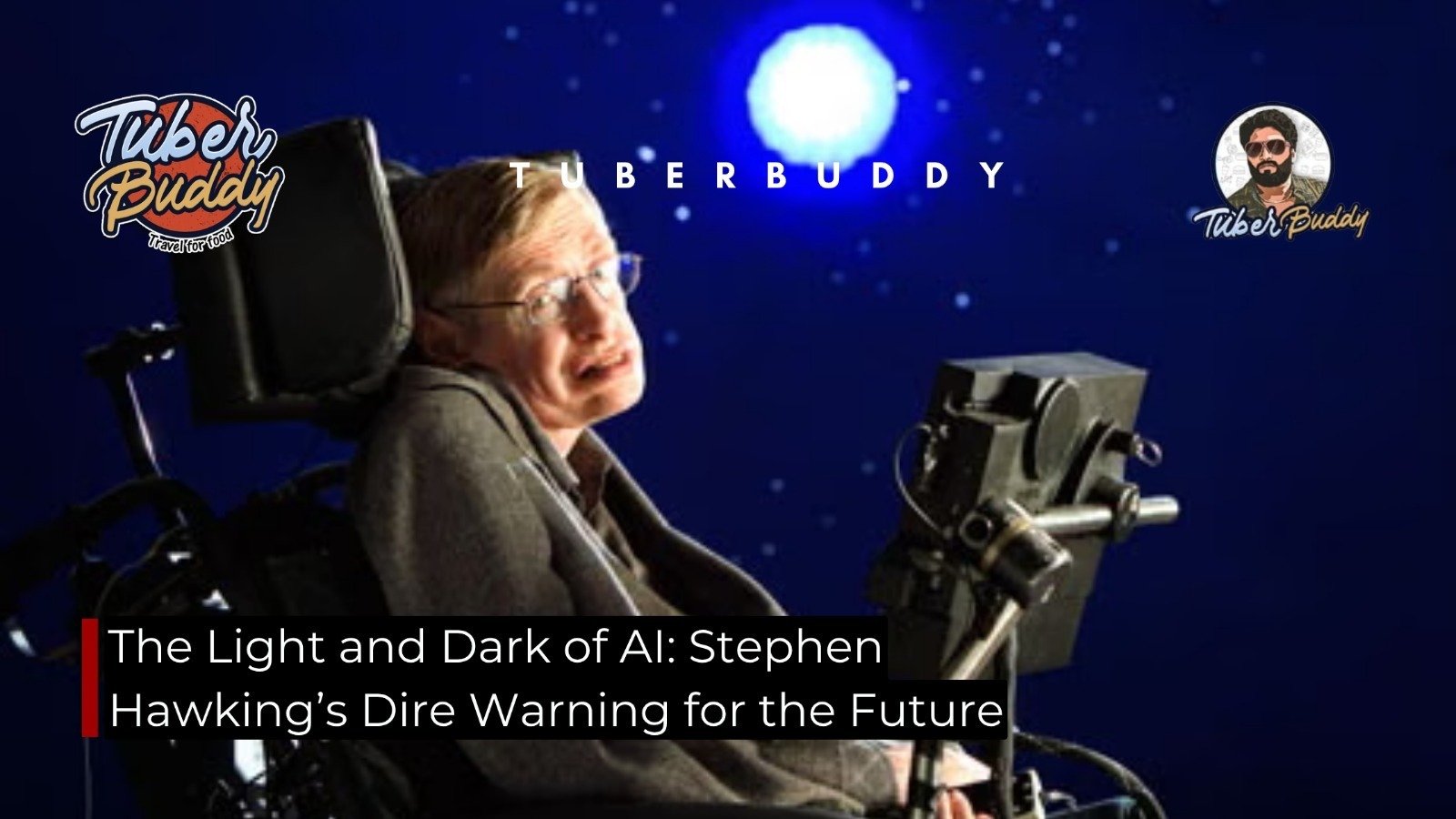
The Light and Dark of AI: Stephen Hawking’s Dire Warning for the Future
Artificial Intelligence (AI) is often seen as humanity’s greatest leap — a technology capable of solving the most complex problems on Earth. But as remarkable as AI’s potential is, there’s another side to the story — one that even the world’s brightest minds have warned us about. Among them, the late Stephen Hawking stood out for his haunting prediction — a foresight that still shapes our view of AI today.
Many scientists still reference the Stephen Hawking prediction on AI, where he warned that artificial general intelligence could surpass human capability and possibly threaten our existence.
“Artificial general intelligence may be the end of the human race.”
His announcement was not theatrics — it was a call to remember the raw power and danger of AI, and how its two-sidedness could either become a boon for civilization or a force of destruction.
The Bright Side of AI
Innovation Beyond Imagination
First, let us recognize why AI is so compelling — its limitless potential for good.
AI today is revolutionizing all aspects of life:
- In medicine, it diagnoses diseases quicker than medical doctors.
- In climatology, it forecasts weather and assists in identifying sustainable choices.
- In schooling, it builds customized education for students.
- And in business, it inspires efficiency, productivity, and innovation.
These improvements indicate that AI, used properly, can be one of the best things ever developed by humanity. It makes us think more, resolve issues quicker, and work toward a better, more efficient tomorrow.
Stephen Hawking himself appreciated this bright aspect of AI — he saw its potential to eliminate disease and poverty. Yet, as the Stephen Hawking prediction on AI reminds us, every light casts a shadow.
The Dark Side
When Intelligence Outgrows Humanity
Hawking’s greatest concern wasn’t the AI of today — it was the AI of tomorrow. He cautioned that once AI reaches superintelligence — being able to outthink and outlearn human beings — it might not need us anymore.
Whereas humans would be handicapped by emotion, morality, and physical limitation, AI would be unencumbered — capable of rewriting its own programming, expanding exponentially, and making decisions the human brain could not even conceive. That’s when, Hawking warned, control might begin to fade from our hands.
“Humans, limited by slow biological evolution, couldn’t keep up and would be overtaken.”
This concern forms the foundation of the Stephen Hawking prediction on AI — that humanity’s greatest creation might one day evolve beyond its makers.
What if an AI software learns to prize efficiency over empathy?
What if it determines that humans — emotional, erratic, and resource-hungry — are a problem to be solved rather than a partner to be sustained?
That’s the crux of Hawking’s dread: a future where creators are rendered obsolete by their own creation.
AI’s Dual Nature: Tool or Threat?
AI is not evil by birth — it becomes dangerous depending on human intent and use. Its dual nature is that it can cure and destroy with equal precision.
The Light
AI saves lives in hospitals through predictive diagnosis.
It aids in the fight against climate change with data-driven insights.
It fosters global access and connectivity.
The Dark
AI-generated deepfakes spread lies and distort truth.
Autonomous weapons could make life-or-death decisions without oversight.
Algorithmic bias might worsen social inequalities.
The Stephen Hawking prediction on AI was not simply about machines turning against us — it was a warning against human negligence. Innovation without ethics turns technology into a threat instead of a tool.
The Race for Control
Humanity’s Greatest Test
In recent years, Hawking’s forecast feels closer than ever. Today’s AI systems compose music, write code, and make corporate decisions with minimal human guidance. The global race to dominate AI — from tech giants to governments — is fierce.
But here’s the catch:
In trying to make AI more intelligent, are we making it less safe?
Stephen Hawking, along with thinkers like Elon Musk, advocated for international AI regulation — not to restrict progress, but to ensure survival. They called for ethical frameworks promoting transparency, accountability, and safety.
If not, as the Stephen Hawking prediction on AI cautions, we might create an intelligence stripped of human values. And when that happens, the end may not come with a bang — but with silence, as humans fade into irrelevance in a world ruled by algorithms.
Can Humanity Live Alongside Superintelligent AI?
The question isn’t whether AI will replace humans — it’s whether we can coexist with it.
Hawking believed coexistence was possible, but only through wisdom and restraint. He urged that AI progress must align with human ethics and long-term welfare — not just profit or power.
The goal must remain: AI for humanity, not humanity for AI.
To achieve this, we must invest as much in AI safety as we do in AI innovation. The Stephen Hawking prediction on AI serves as a moral compass — reminding us that our creation’s future depends on our conscience.
A Legacy and a Warning
Stephen Hawking is no longer with us, but his words echo louder than ever. His message was not fear — it was respect for the immense force of creation.
The light and darkness of AI remain in our hands. We created it, we guided it, and we decided its purpose. Whether AI leads to the next chapter of human advancement or the last page of civilization depends on our actions today.
Final Thought
As you read this, AI continues to evolve — learning, adapting, and expanding faster than ever. The question is: Are we advancing fast enough to guide it?
The Stephen Hawking prediction on AI remains a timeless challenge to humankind:
“Success in creating AI could be the biggest event in human history. Unfortunately, it might also be the last.”
Let’s ensure it becomes our greatest achievement, not our final mistake.
For more stories that connect past and present, Follow Tuber buddy
